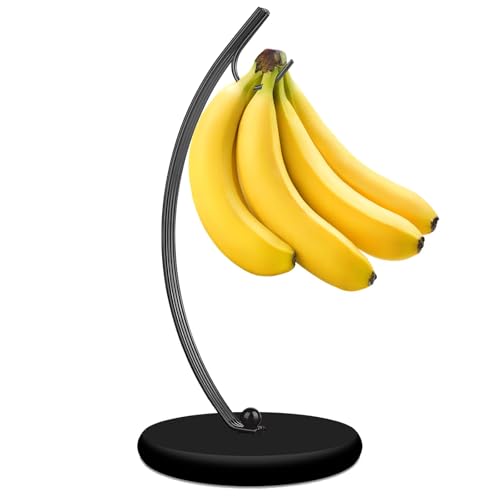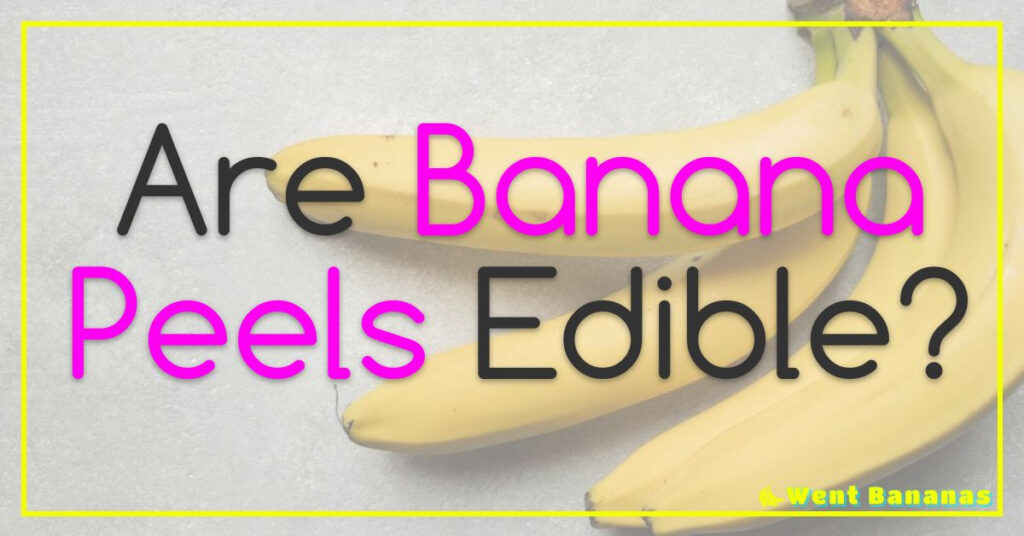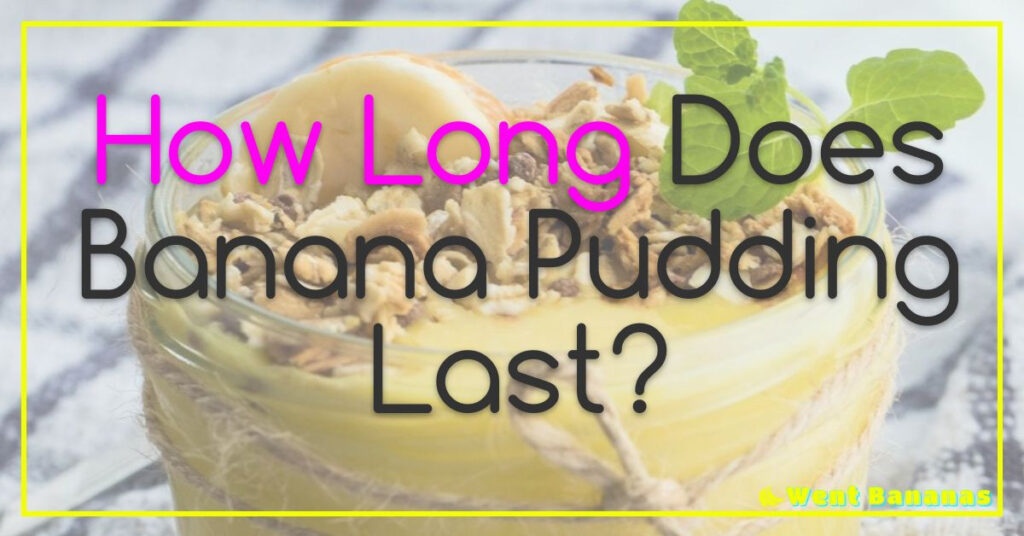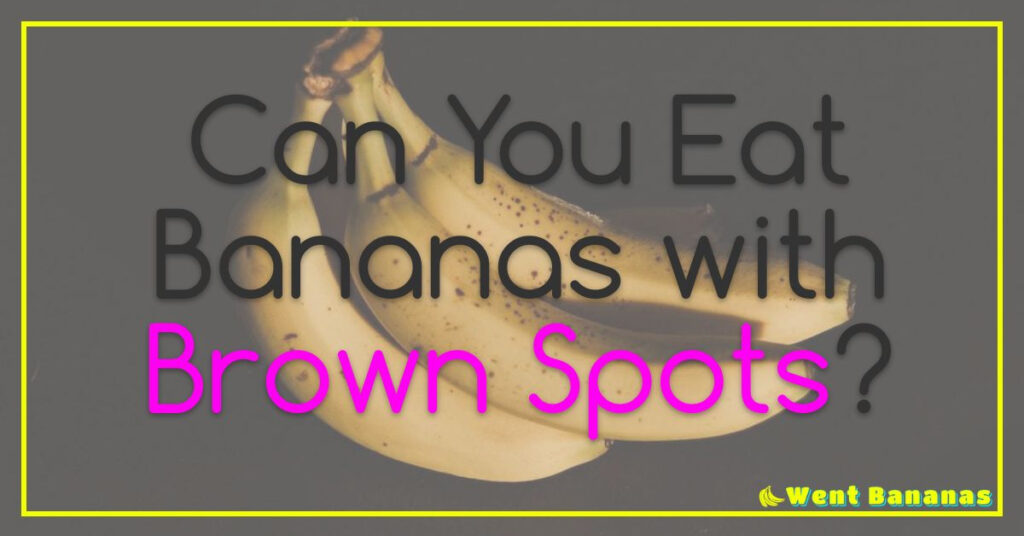Bananas are one of the most popular fruits in the world, but how much do you know about the nutritional facts behind them?

In this article, we’ll dive into everything you need to know about bananas including what they actually are, the different nutritional components that constitute a banana, the numerous health benefits of consuming them, the potential risks of eating too many bananas, and how to incorporate them into your diet for optimal nutrition.
To learn more about this nutritional powerhouse fruit, read on!
Are Bananas Nutritious?

A banana is a sweet, curved yellow fruit that grows on an evergreen tropical tree. The yellowish-brown skin of the fruit contains many small black seeds. It is widely used in desserts, smoothies or just eaten raw as a snack.
Bananas are rich in fiber and vitamins such as potassium, magnesium, and Vitamin B6 which support heart health and provide energy for daily activities. They also contain antioxidants that help protect against diseases like cancer and diabetes, making them one of nature’s most nutritious fruits to eat!
The Nutritional Components of a Banana
Bananas are a great source of nutrition that is widely available. They contain several essential vitamins and minerals, making them an ideal snack or part of any balanced diet.
Bananas are high in potassium, which helps regulate blood pressure, as well as magnesium to maintain muscle health and strength. Other key nutrients include vitamin B6 for energy production and iron for healthy red blood cells.
Bananas also provide dietary fiber, which helps digestion by keeping the digestive system regular while aiding in weight management too.
A single banana contains about 3 grams of dietary fiber (12% DV). Additionally, its low glycemic index makes it a good choice for those managing their sugar intake or trying to avoid sudden spikes in glucose levels after eating certain foods like processed carbs or sweets with empty calories.
Finally bananas can help increase your antioxidant activity due to their naturally occurring polyphenols such as dopamine that has been linked with improved moods
The Health Benefits of Eating a Banana
Eating a banana can be one of the healthiest things you do. This delicious fruit is packed with essential vitamins and minerals, which help to promote overall wellness. Bananas are especially rich in potassium which helps to regulate muscle contractions, including those that control your heartbeat and maintain proper blood pressure levels.
They’re also high in fiber, helping to keep your digestive system running smoothly; altogether these components make for an amazing snack or addition to meals throughout the day!
Bananas provide other benefits as well, such as promoting bone strength due to their vitamin K content. Eating bananas may even reduce stress by increasing serotonin production in the body — an important hormone associated with feelings of happiness and relaxation!

All this makes snacking on a banana a great way boost both physical health and mental well-being at any time during the day or night.
The Potential Risks of Eating Too Many Bananas
Eating too many bananas has the potential to cause adverse health effects. While they are rich in vitamins and minerals, this tropical fruit also contains a large number of natural sugars and carbohydrates.
Consuming an excessive number of bananas can lead to rapid weight gain, increased risk of developing diabetes, high blood pressure, heightened levels of bad cholesterol (LDL), as well as other cardiovascular issues.
Bananas should be consumed only moderately – ideally no more than two per day – because consuming larger amounts increases your risk for nutrient deficiencies due to their relatively low content of protein and healthy fats.
Additionally, while the sugar contained in most fruits is naturally occurring fructose which is less harmful than added sugar found in processed foods such as snacks or sugary drinks; eating too many still poses potential risks if you’re not careful about overall caloric intake throughout the day.
Overall it’s important to remember that any food consumed excessively can have negative consequences on one’s health; so it pays off to practice moderation when it comes to snacking on anything — including bananas!

How to Include More Bananas in Your Diet for Optimal Nutrition
Bananas are a nutrient-dense fruit that can provide essential minerals and vitamins, while also being low in calories. They are an ideal choice for those trying to include more whole fruits into their diet. Incorporating bananas into your daily routine is simple and easy as they can be eaten raw or used in recipes like smoothies, oatmeal bowls, and even desserts.
When purchasing bananas, look for ones with bright yellow skins but no brown spots yet – this indicates the banana is at its peak ripeness to ensure optimal nutrition.
Bananas should feel firm when lightly squeezed; any softness may indicate over-ripening which reduces some of the nutritional value within them. Keep ripe bananas on hand by storing them in a cool place so that you always have one ready for snacking or baking!
Including more bananas into your diet offers numerous health benefits such as increased energy levels from natural sugars present in the fruit, enhanced digestion due to the high fiber content found within its fleshy interior, and improved mood stability due to Vitamin B6 which helps create serotonin —the ‘happy hormone’—in our bodies .
Furthermore incorporating mashed banana instead of oil when baking chocolate treats creates delicious guilt-free snacks! So if you’re looking for ways to boost your overall well-being then adding more fresh ripe bananas might just be what you need!
Final Thoughts
It’s clear that bananas are a nutritious and delicious option for anyone looking to add more vitamins, minerals, and energy to their diet. Bananas can provide a host of health benefits when enjoyed in moderation as part of an overall balanced diet.
To learn how to include more bananas into your daily routine for optimal nutrition and health benefits, be sure to consult with qualified professionals or join our newsletter!
















